Beijing, June 10
A joint symposium on “COVID-19 Fightback and the Future ‘New Normal’” organized by Tsinghua University and Imperial College London was held virtually on Wednesday with experts calling for strengthening international solidarity and cooperation in scientific studiesamonguniversities to overcome the pandemic andprevent possible future global health emergencies.
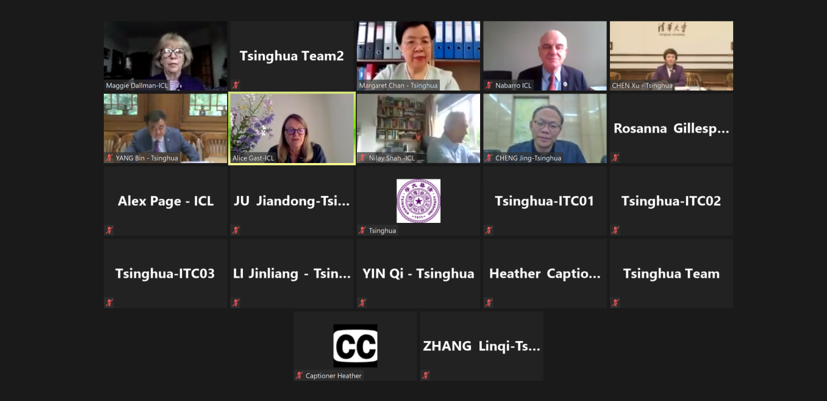
The event, which brought public health experts from the World Health Organization (WHO), Tsinghua University and Imperial College London together, is the latest attempt by Tsinghua University to share knowledge and experience, and promote global efforts in the fight against COVID-19, which has affected more than 200 countries around the world.
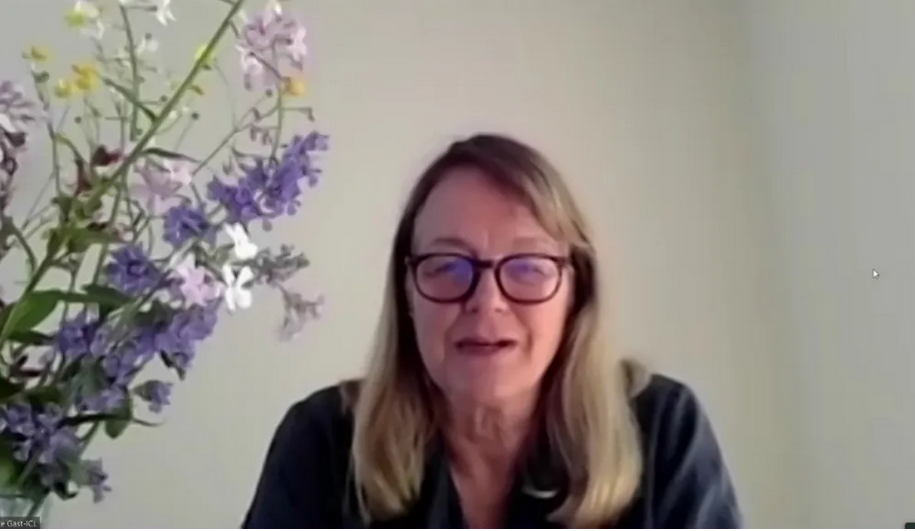
Delivering a welcome speech at the opening session of the symposium,Alice Gast, President of Imperial College London stressed the importance of scientific collaboration and cooperation among universities and other international institutions around the world to overcome the pandemic and other global challenges.
“We must ensure that this pandemic strengthens the links between Chinese and UK science, and institutions such as ours. The coronavirus operates across borders, and so do our efforts to inhibit and defeat it,” she said.
She announced that Imperial College London will be welcoming applications for the Tsinghua-Imperial Research and Innovation Seed Fund at the beginning of the next academic year. The fund promotes and supports early-stage collaboration among academics, researchers and students at Tsinghua and Imperial.
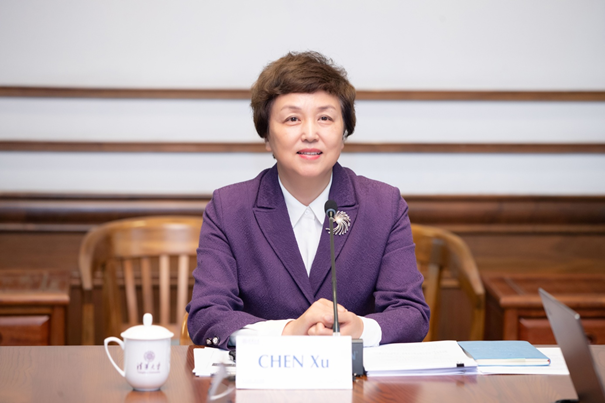
The Chairperson of Tsinghua University Council Chen Xu, giving a welcome speech, said that universities around the world have a common commitment to building educational resilience as well as contributing to the fight against global health emergencies.
“I have confidence that our vibrant partnership will not only benefit the two universities, but also provide critical solutions for the world at large,” she said.
Reaffirming Tsinghua’s commitment to safeguard global public health security and improve human health, she said Tsinghua has set up a research fund and established the Vanke School of Public Health to encourage and support the university faculty to initiate joint research with international partners on COVID-19.
She also shared recent significant scientific and technological achievements made by Tsinghua faculty and students to fight against COVID-19. “Tsinghua has contributed to structural studies of coronavirus-receptor interactions, the development of a nucleic acid detection kit, the creation of an intelligence-assisted diagnosis system and the efficient isolation of antibodies against the coronavirus. In addition, we have provided open access to Tsinghua’s drug discovery resources and platforms for global researchers,” she said.
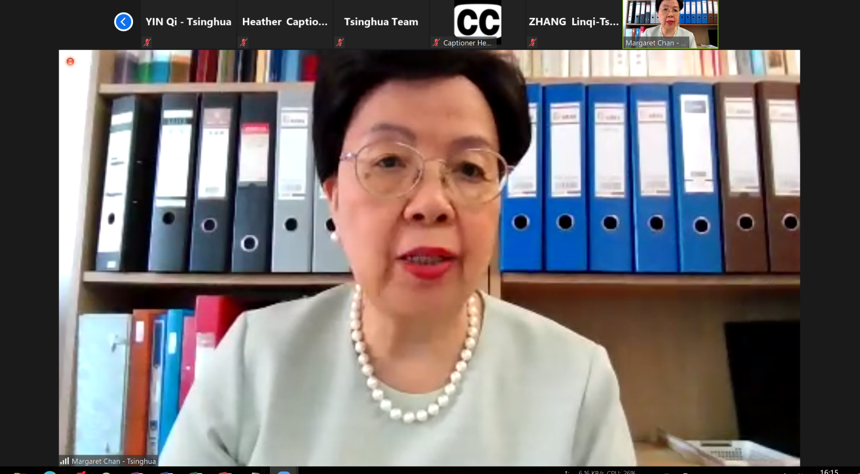
Margaret Chan, the Inaugural Dean of Vanke School of Public Health Tsinghua, and Honorary Director-General of the WHO, was one of the two keynote speakers of the symposium. She said that the international community should continue to uphold the concept of a community of a shared future for mankind, further strengthen cooperation under the guidance and coordination of the WHO, work together to overcome the current crisis and build a global community of health for all.
Praising China’s successful handling of the COVID-19 epidemic and timely assistance to the countries affected by the epidemic, Chan said that the pandemic has reaffirmed the values of global solidarity, trust, unity and cooperation in the face of a shared common health threat.
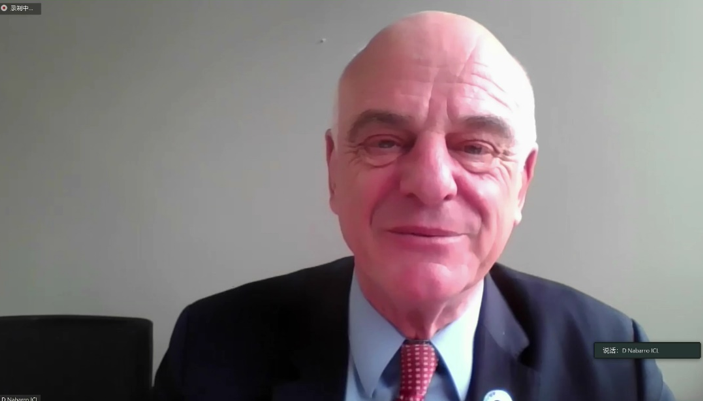
Another keynote speaker, David Nabarro, WHO special envoy on COVID-19 and Co-Director of the Institute of Global Health Innovation at Imperial College London, said thatunity, solidarityandcooperationshown by universitiesaround the world in fighting against the coronavirus was praiseworthy.
“I have never seen the level of cooperation among scientists and among those who support science that we're seeing right now. This is so totally new. Let's take advantage of this wonderful collaboration between Imperial College and Tsinghua to take that degree of engagement and working together for the public good to a new level because we have got to learn to get public health right,” he said.
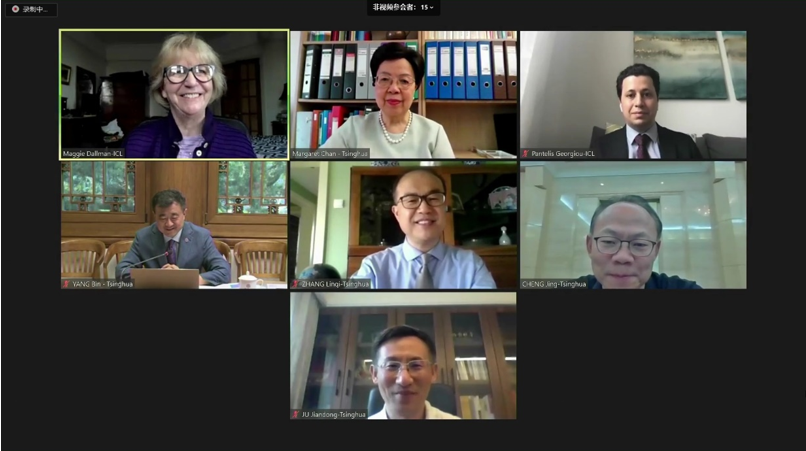
The opening session was followed by three panel discussions on the following topics: COVID-19 Vaccine Development, Diagnostic Tools Development, and Post-COVID-19 economics.
Zhang Linqi, Chair of Global Health and Infectious Diseases Center, School of Medicine, Tsinghua University and Nilay Shah, Head of the Department of Chemical Engineering, Imperial College London, talked about vaccine development in China and the UK, while Cheng Jing, CAE Member and Professor, School of Medicine, Tsinghua University and Pantelis Georgios, Reader in Biomedical Electronics, Department of Electrical and Electronic Engineering, Imperial College shed light on diagnostics tools development. Ju Jiandong, Unigroup Chair Professor at PBC School of Finance, Tsinghua University and David Miles, Professor of Financial Economics, Business School, Imperial discussed post-COVID-19 economics.
Following the panel discussions, Yang Bin, Vice President and Provost of Tsinghua University and Maggie Dallman, Vice President (International) of Imperial College London, delivered concluding remarks.
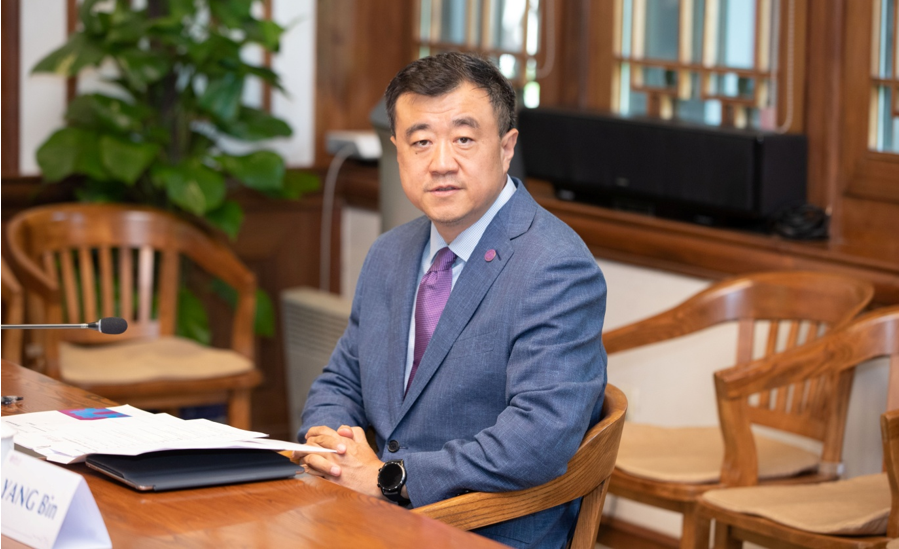
Yang Bin expressed the hope to see collaboration between Tsinghua University and Imperial College London in COVID-19 vaccine manufacturing, while Maggie Dallman said thathaving a strong relationship with Tsinghua puther institutionin a very strong position to helptheworld population come through this crisis.
Writer: Sangeet Sangroula
Editors: John Olbrich

